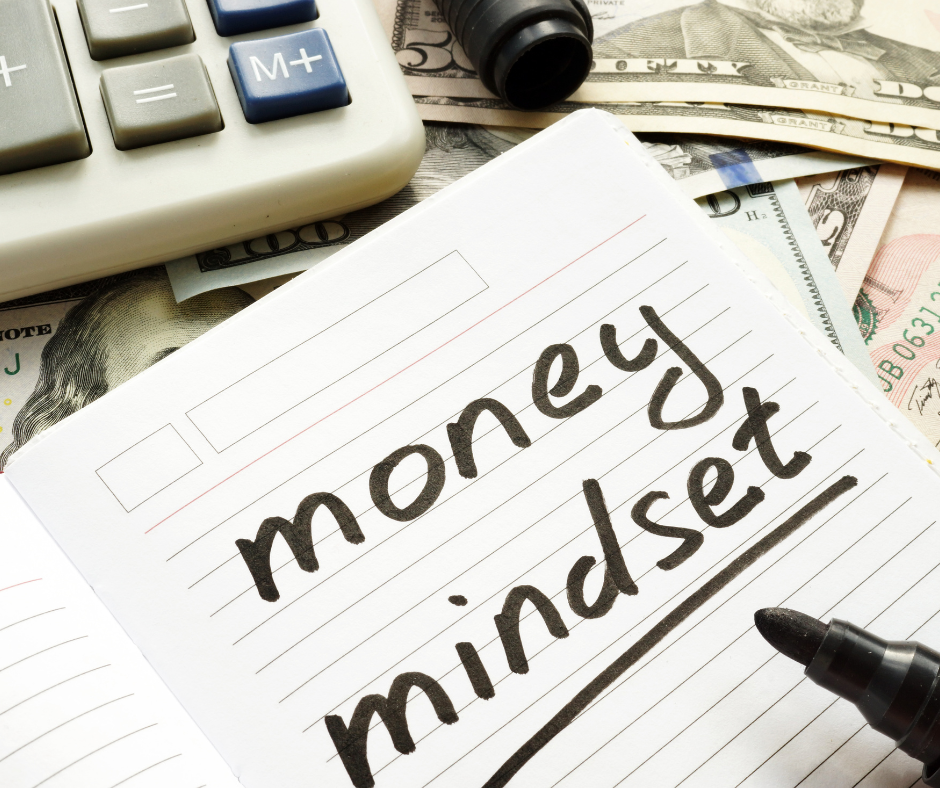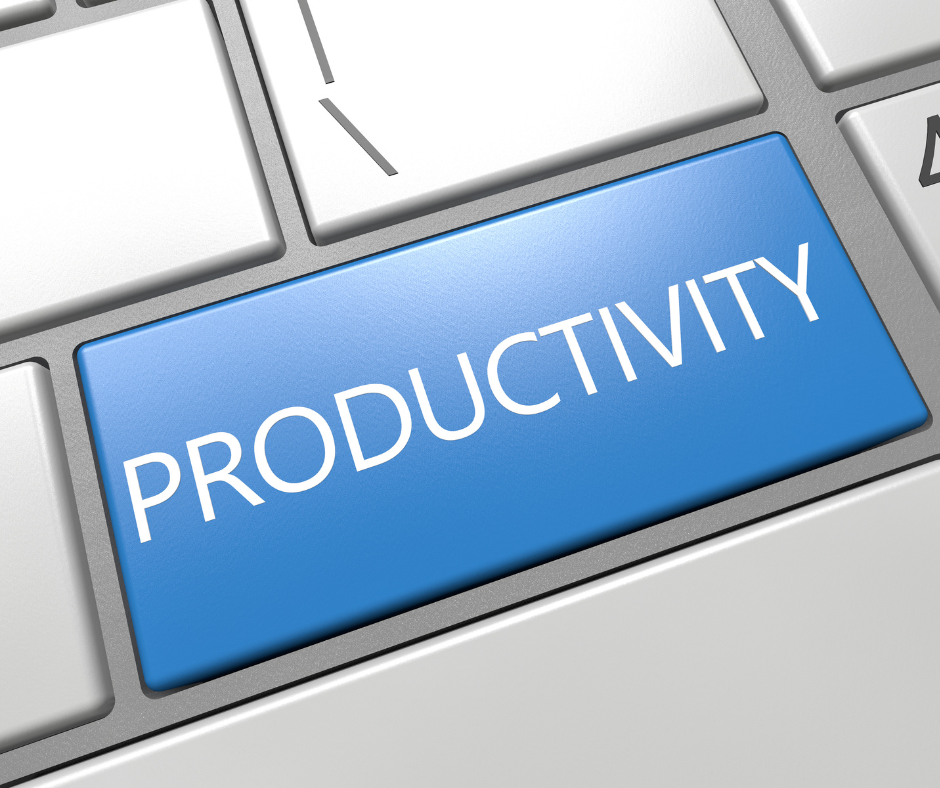Today we’re going to talk about an uncomfortable topic – dealing with criticism. Have you ever felt hurt or demotivated after receiving criticism at work or in your personal life? Do you struggle with knowing how to respond to criticism without getting defensive or feeling attacked?
In today’s episode, we’re diving into the world of criticism and uncovering the secret to handling feedback in a more constructive and empowering way.
Criticism is an unavoidable part of life, especially in professional fields like accounting. Whether you’re on the receiving end of a formal review or providing feedback to others, the process can often be uncomfortable and awkward.
The impact of criticism goes beyond mere words. It can leave us feeling vulnerable, drained, and questioning our abilities.
But here’s the good news: understanding the intricacies of our brain’s response to criticism can help us navigate these challenging situations with greater resilience and growth. By unraveling the neural pathways and thought patterns associated with criticism, we can retrain our brain to respond in a more positive and productive manner.
In this episode, we’ll explore how our brain processes criticism, the impact of different types of feedback, and the subjective nature of interpreting others’ words. We’ll also delve into the power of our past experiences and self-image on our ability to handle criticism effectively.
We’ll also uncover a powerful distinction between criticism and feedback, and how it empowers us to take control of how we interpret others’ words. Finally, we’ll provide practical strategies for managing criticism, developing a growth mindset, and transforming feedback into an opportunity for personal and professional development.
If you’ve ever found yourself struggling with criticism, feeling defensive, or letting negative feedback consume your thoughts, then this episode is for you. By the end, you’ll be equipped with a deeper understanding of the psychology behind criticism and the tools to navigate these situations with confidence and self-assurance.
Get ready to become a Smarter Accountant who knows how to handle criticism with grace and use it as a stepping stone to even greater success.
Mark’s story: Struggling with criticism
To shed light on this topic, I want to share the story of Mark from my book, “The Smarter Accountant.” Mark was a financial analyst at a large healthcare organization and despite his dedication and hard work, Mark struggled with receiving criticism throughout his life, often allowing it to linger and affect him deeply.
He was due for his mid-year review and told his girlfriend that he knew that reviews were a necessary part of the job, but he couldn’t help feeling horrible afterwards.
Ever since Mark was younger, he had had a hard time receiving criticism, often being upset for weeks due to a remark a teacher made on his report card or something a sports coach said to him. He struggled with moving past other people’s feedback and critiques, often feeling a good deal of shame.
He knew he was intelligent and a hard worker, but he dreaded hearing criticism, especially from his employer. Sometimes, he became so worried about negative feedback that he became a people pleaser, trying to control other people’s opinions of him.
After he received this year’s mid-year review, all he could focus on was the one or two “needs improvement” ratings and not on all the “meeting or exceeding expectations” ones. He felt inadequate after his review and spent a lot of time trying to figure out what he had done wrong.
He could see how much it was distracting him and how it was affecting how he showed up around his boss, but he couldn’t stop. A trusted colleague tried to help him deal with the mid-year review feedback, but he wasn’t getting through to Mark.
The brain’s response to criticism
Can you relate to Mark’s story? I know I definitely can. Criticism is a part of life, but it’s not fun. The truth is that our brains play a big role in how we react to criticism, and understanding this can help us manage our emotions and respond in a more productive way.
It’s important to understand that when we receive criticism, our brains go into overdrive. When we receive criticism, our lower, primitive brain that I refer to as The Toddler, is activated, triggering a fight-or-flight response that can cause us to feel threatened, defensive, or even attacked.
This automatic response has been hardwired in us since humans lived in caves. If you think about it, it makes sense because if our brain interpreted something as a criticism and we were ostracized from our tribe, it could be a matter of life or death.
In other words, our safety depended on being accepted by the tribe. If we were criticized, we could be left on our own and possibly die.
It’s also important to understand that our brains have millions of neural pathways that make our reactions seem like they’re not within our control, especially when it comes to dealing with criticism. Neural pathways are the connections formed between neurons in our brains that allow information to be transmitted and processed.
They are like highways for information that become stronger and more efficient with repeated use. The way I like to explain it is that neural pathways start out as overgrown, impassible jungle paths, but with repetitive use, they are eventually cleared to become super highways.
While our lower, primitive brain wants to jump right into a fight-or-flight response, we also have the higher part of our brain, that I refer to as The Supervising Parent. This part of the brain is only present in humans and is responsible for executive functions, such as decision-making, problem-solving, and impulse control.
When we receive criticism, the higher part of our brain is activated as we try to process the information and figure out what to do next. Thankfully, this part of our brain is more rational and less reactionary.
The interesting thing about criticism is that not all criticism is created equal, and the type of criticism we receive can have a big impact on our brain’s response. For example, constructive criticism, which is intended to help us improve, is often easier to process than destructive criticism, which is intended to hurt or undermine us.
Studies have shown that constructive criticism can actually activate the reward centers in the brain, leading to feelings of pleasure and satisfaction. Depending on certain factors, constructive criticism can feel helpful instead of harmful.
On the other hand, destructive criticism can activate the brain’s stress response and lead to negative emotions such as anger, anxiety, and depression. In fact, research has shown that even mild criticism can activate the same neural pathways as physical pain.
Subjectivity and past experiences
Another factor that can impact our brain’s response to criticism is the source of the criticism. Criticism from someone we respect, such as a boss or mentor, may be more easily accepted than criticism from someone we don’t know or don’t respect.
For example, your friend could make the same comment as your mother-in-law, but you might see it as helpful from your friend and harsh criticism from your mother-in-law. The key is understanding that the way your brain interprets other people’s words is completely subjective.
Also, our past experiences with criticism can form strong neural pathways, dictating how we respond to criticism in the present moment. In other words, the way we process and respond to criticism can also be influenced by our past experiences with feedback.
For example, if we have had negative experiences with criticism in the past, our brains may be more likely to respond negatively to future feedback, even if it is delivered in a constructive and supportive way.
Similarly, research has found that people who have a more positive self-image tend to respond more positively to criticism, while those with a more negative self-image may experience more negative emotions in response to feedback.
Retraining your brain’s response
Despite the fact that our brains play such a crucial role in our response to criticism, it is important to remember that our brains are not fixed and can be easily trained to deal with criticism in a more constructive way. By becoming more aware of our thought patterns and emotional responses to criticism, we can begin to retrain our brains to respond in more positive and productive ways.
Let’s face it, in this day and age of social media, product reviews, and Yelp, you are probably asked many times for feedback and reviews. You may also use other people’s feedback and reviews before you hire someone or purchase something.
For example, before I go anywhere on vacation, I always check Trip Advisor and read the reviews and comments about the places and activities I’m planning on visiting. I also scour the reviews of a book I’m interested in reading to get a feel for whether the book is worth my time, and I will check the reviews on OpenTable before I try a new restaurant.
Distinguishing criticism from feedback
So if we live at a time when reviews and feedback are so common, then why aren’t we better at giving and receiving feedback and criticism? To answer that, let’s distinguish between the two by first looking at the dictionary definitions:
Criticize (dictionary)—to find fault; judge unfavorably or harshly; to make judgments as to merits and faults
Feedback (dictionary)—a reaction or response to a particular process or activity
The important thing to notice is that the dictionary definition of feedback isn’t about a person, it’s about the actions or process the person was involved in. Although both involve an evaluation, criticism uses the words “judge” and “fault”, making it seem much more personal to the giver or receiver.
Now that we are clear on the dictionary definitions, I want to give you a different perspective that a fellow coach shared:
Criticize (new perspective)—the action one takes which is caused by negative emotions; action taken with the intention to release negative emotions in order to feel better
Feedback (new perspective)—the action one takes in order to help or convey information; action taken from a neutral place with the intention of informing
As you can see with the new perspective of the difference between criticism and feedback, it all comes down to intention and how you or others were feeling before taking action. Whether you are on the receiving or giving end, determining whether it’s criticism or feedback will always be based on the intention behind it, and the good news is that it’s up to you to decide.
Why is that good news? Because the words someone says about you are neutral and you get to decide whether you want to think that they are feedback or criticism. You get to decide whether the person was feeling negative or neutral, even if you can’t be sure.
Just knowing this delineation is an important step to learning the subtle art of receiving criticism. It could mean the difference between a powerful opportunity for growth and a frustrating game of shame.
Becoming a Smarter Accountant – the art of handling criticism
While criticism can often feel like a personal attack, triggering our fight-or-flight response and leading to defensive reactions, it’s important to recognize that our brain’s automatic response is not necessarily helpful or productive. The key lies in consciously managing our thoughts and emotions to respond in a more constructive way.
One crucial step in handling criticism is recognizing our own emotional triggers and thought patterns. By developing awareness, we can identify when our lower brain, the Toddler, is driving our reactions.
This awareness allows us to pause, take a deep breath, and engage our higher brain, the Supervising Parent, which is responsible for executive functions like decision-making and impulse control.
Next, reframing the criticism as an opportunity for learning and growth is a powerful mindset shift. Instead of viewing feedback as a personal attack, we can choose to see it as valuable information that can help us improve and reach our full potential.
Embracing a growth mindset allows us to see criticism as a stepping stone towards progress rather than a reflection of our worth.
It’s also essential to break free from negative self-talk and rumination. Our brains have a tendency to replay criticism over and over again, fueling feelings of shame, inadequacy, or low self-esteem.
Instead, we can consciously redirect our thoughts towards more positive and constructive narratives. Remind yourself of your strengths, accomplishments, and the progress you’ve made so far.
In addition, seeking opportunities for improvement based on the feedback received can turn criticism into a catalyst for growth. Embrace a proactive approach by reflecting on the feedback, identifying specific actions you can take to address the areas of improvement, and setting goals to enhance your skills or knowledge.
By actively engaging in your own development, you regain control and transform criticism into a driving force for self-improvement.
Lastly, remember that you have the power to interpret others’ words. Recognize that criticism is subjective, and it’s up to you to decide how you want to think about it.
Consider the intention behind the feedback and choose a perspective that serves your growth and well-being. By taking ownership of your interpretation, you reclaim the power to shape your emotional response and subsequent actions.
Handling criticism is an art that can be mastered with practice and self-awareness. By consciously managing your thoughts, reframing feedback, seeking growth opportunities, and taking ownership of your interpretation, you can transform criticism into a valuable tool for personal and professional development.
As a Smarter Accountant, you can have the awareness of what your lower, Toddler brain is making someone’s words mean, and then decide on purpose how you want to think about it to be in control of how you feel, what you do or don’t do, and your results. You determine the best way to interpret someone’s words, making it much easier to handle criticism.
The truth is that criticism can feel like a personal attack, activating the same parts of our brain that respond to physical threats, leading to feelings of defensiveness, anger, or anxiety. But by recognizing our automatic negative thought patterns and consciously choosing to approach criticism with a growth mindset, we can retrain our brain to respond differently.
The secret to dealing with criticism is to become aware of what your brain is making someone else’s words mean and choosing a more helpful and useful way to interpret those words. When you learn how to manage your brain, dealing with criticism is much less painful.
If you have difficulty dealing with criticism, let’s talk. Schedule a quick, free coaching session with me and I’ll help you understand what to do.
While criticism isn’t pleasant, there are things you can do to make it much easier. I can teach you a simple formula for how to deal with criticism.
Just go to www.thesmarteraccountant.com/calendar and book a free session with me.
That’s what I have for you, but make sure you check back each week as I help you go from being a stressed accountant to a Smarter Accountant.
Make sure you go to www.thesmarteraccountant.com and take The Smarter Accountant Quiz. You’re going to want to know if you’ve been underutilizing your accountant brain so that you have a starting point for becoming a Smarter Accountant..
Also, I would appreciate it if you could get the word out to other accountants about this podcast. The more accountants find out about it, the more we can begin to change the narrative in the accounting profession.
The truth is that you’re already smart, but this podcast will show you how to be smarter.



